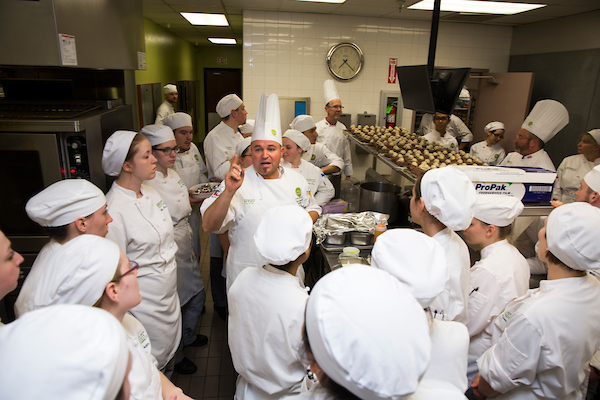 All faculty should thoroughly and regularly review Policy 635 § 4.5 to understand
their rights and responsibilities in teaching, as well as Policy 601: Classroom Instruction and Management, which outlines University standards and procedures for teaching at UVU. These policies
constitute the baseline expectations for teaching, which will be evaluated each year
in faculty annual performance reviews.
All faculty should thoroughly and regularly review Policy 635 § 4.5 to understand
their rights and responsibilities in teaching, as well as Policy 601: Classroom Instruction and Management, which outlines University standards and procedures for teaching at UVU. These policies
constitute the baseline expectations for teaching, which will be evaluated each year
in faculty annual performance reviews.
Beyond these baseline expectations, faculty should strive for teaching excellence by working to make their classes more inclusive and engaging and focused on student achievement (see Teaching Excellence Model below). Faculty should also be aware of how their teaching will be evaluated per their approved department RTP criteria.
Teaching Excellence Model and Peer-assessment
Faculty members should regularly review the UVU Teaching Excellence model created by the Faculty Senate Advancement of Teaching Standing Committee and use annual reviews and the tenure and rank advancement processes to document the development of their teaching in the domains of inclusion, engagement, and student achievement.
Faculty must also engage in rigorous peer-assessment of their teaching. The Advancement of Teaching Committee has created a peer-assessment process and form to assist faculty in meeting this obligation.
Both the Teaching Excellence Model and the peer-assessment process and form can be found at Teaching Excellence at UVU.
Professional Development
Faculty are required to demonstrate that they have participated in professional development to improve their teaching when they apply for tenure (Policy 637 § 5.6.1.4). Opportunities to evaluate and improve teaching are available through the Office of Teaching and Learning and through the Office of Academic Affairs (contact [email protected]).
Student Ratings of Instruction
Student Ratings of Instruction (SRIs) are an important piece in evaluating and improving teaching.
However, at UVU we are well aware that the information presented by SRIs varies widely in validity and reliability. Some of these issues operate at an institutional level, as the university does not require students to complete SRIs; thus, some courses may be evaluated by only a few students, calling into question any numbers reported. Moreover, SRI scores and comments have been shown in multiple studies to be biased by race, gender, sexual orientation, age, nationality, and other demographic factors. And SRI scores can be lower for classes where difficult topics are discussed and those with innovative pedagogies (e.g., student-centered approaches, service learning, online or hybrid modalities).
For these and other reasons, UVU embraces a developmental approach to SRIs in which faculty responses to and contextualization of student comments in annual reviews and reflections within RTP portfolios are more important than the scores themselves. Faculty should demonstrate commitment to continuous development of their teaching through changes to course materials and procedures, professional development, etc., in response to comments in the SRIs.
There is not a University-wide "cutoff score" for SRIs, and UVU administration and the Faculty Senate do not support the use of SRI scores as the sole or most significant determining factor in recommendations and decisions with regard to retention, tenure, or promotion, or in annual reviews, though these scores may serve to draw attention to aspects of a faculty member’s teaching that may need a closer look. Department chairs should work with faculty members each year to identify areas of concern in SRI comments and set goals for improvement in order to ensure teaching excellence and increase student success.
Faculty members should be aware of any requirements regarding SRIs in their approved department RTP criteria.